Some Standout Brands From the Chicago Collective
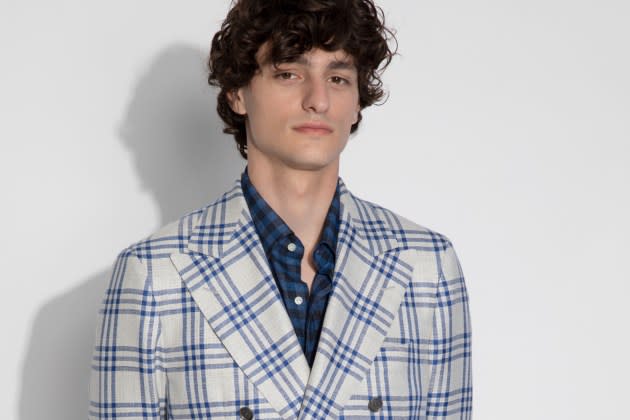
Brand: Tommy Bahama
Designer: Bradley O’Brien, executive vice president of product design and development
More from WWD
Men's Tailoring: More Than a Fashion Trend for Italian Brands
WP Lavori in Corso, the European Workwear Beacon, Hits Pitti Uomo
Backstory: The brand’s Indigo Palms collection is not new but for fall, it is being reintroduced with a focus on jeans and complementary products. The line features all new fabrics and fits and is being marketed as a stand-alone collection outside of the core Tommy Bahama offering.
Key styles: In jeans, there are three men’s fits in five washes. The most popular style is the Indigo Palms fit with a 15-inch straight leg, but there are also more relaxed fits as well. Every model features stretch and the jeans are being merchandised with yarn-dyed denim or chambray shirts. The line also includes washed corduroy or flannel overshirts, sweaters and traditional denim jackets and shirts to round out the assortment.
Prices: Jeans retail from $110 to $150 while tops are $100 to $150.
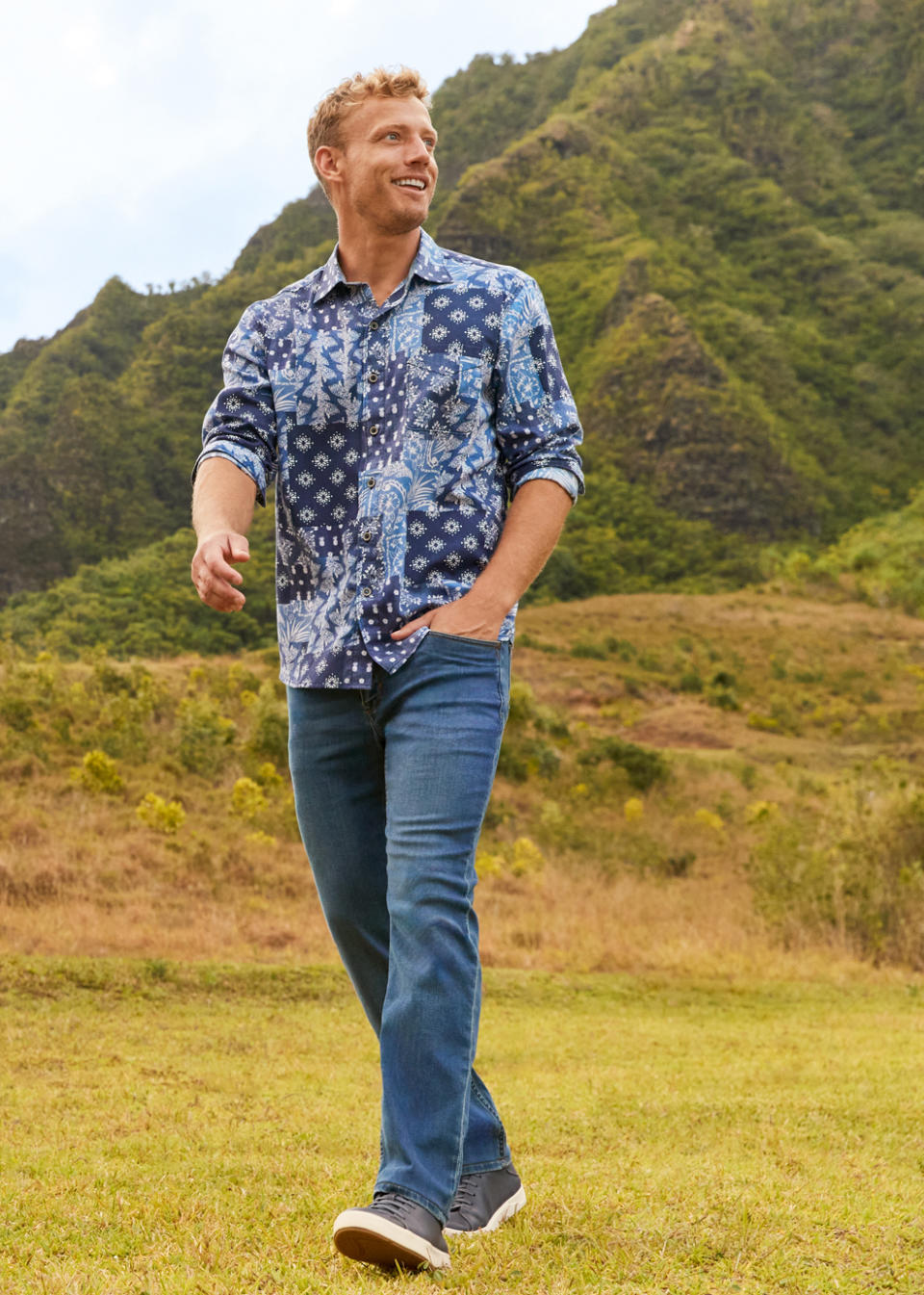
Brand: Jack Victor
Designer: James Watson
Backstory: The Montreal-based business is more than 110 years old, but its collection is anything but stodgy. Since creative director James Watson joined the company three years ago, the brand has undergone a major transformation, offering up bold, seasonal colors and increasing its focus on luxury sportswear to complement its expertise in tailored clothing.
Key pieces: For the fall collection, the focus is on sartorial dressing. But key pieces are intended to play double duty, offering guys an option to dress things up with traditional shirts and ties or take a more casual bent by wearing a turtleneck or T-shirt underneath. The offering includes an assortment of sport coats in a Comfortwear collection made from luxurious Loro Piana fabrics ranging from 100 percent cashmere to silk and cashmere blends. The palette includes bordeaux, teal and other fashion colors as well as neutrals.
Prices: Most Comfortwear pieces retail for $1,098 to $1,698.
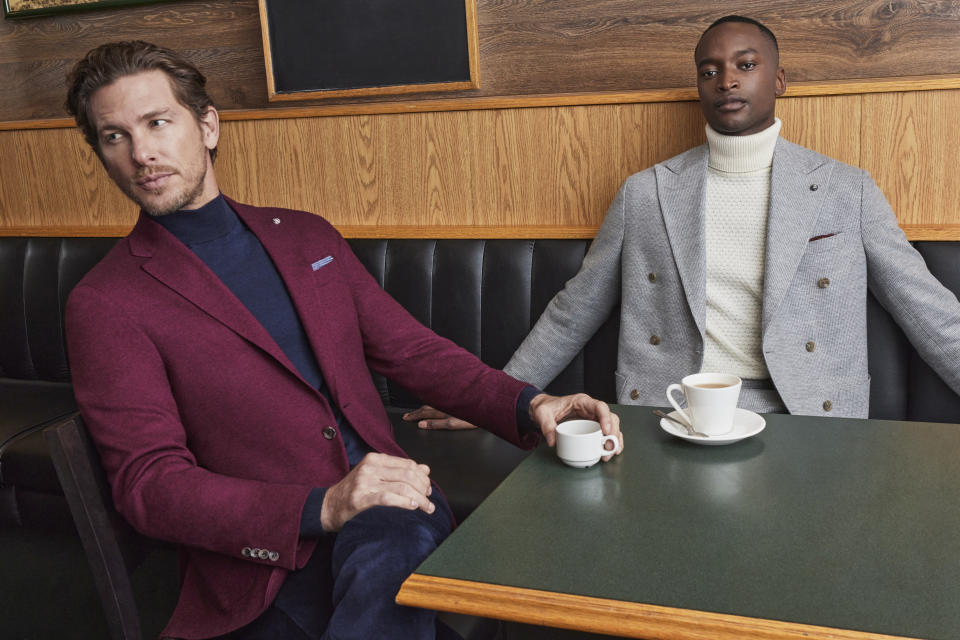
Brand: Barbour
Backstory: The family-owned brand traces its history to 1894 in South Shields on the coast of England where it got its start selling “oilskins and waterproof” jackets and footwear. While the brand has significantly expanded its offerings for both men and women, its heritage remains visible in every piece.
Key pieces: Two of the brand’s key collections for fall are “Reengineered for Today” and “Heritage+.” In both cases, Barbour took recognizable outerwear silhouettes such as Classic Bedale or Beaufort waxed jackets and infused them with fashion elements such as pockets and collars in maroon corduroy to complement the tartan linings, drip strips on the bottom and game pockets. Heritage+ is the more premium offering and includes a waxed trench with a plaid interior, and the Dryfly waterproof jacket that unzips to become longer when the weather turns nasty. Throughout the line, the brand offers complementary sportswear pieces such as sweaters and tartan shirt-jackets.
Prices: The Reengineered line retails from $415 to $625 and the Heritage+ collection is $400 to $840.
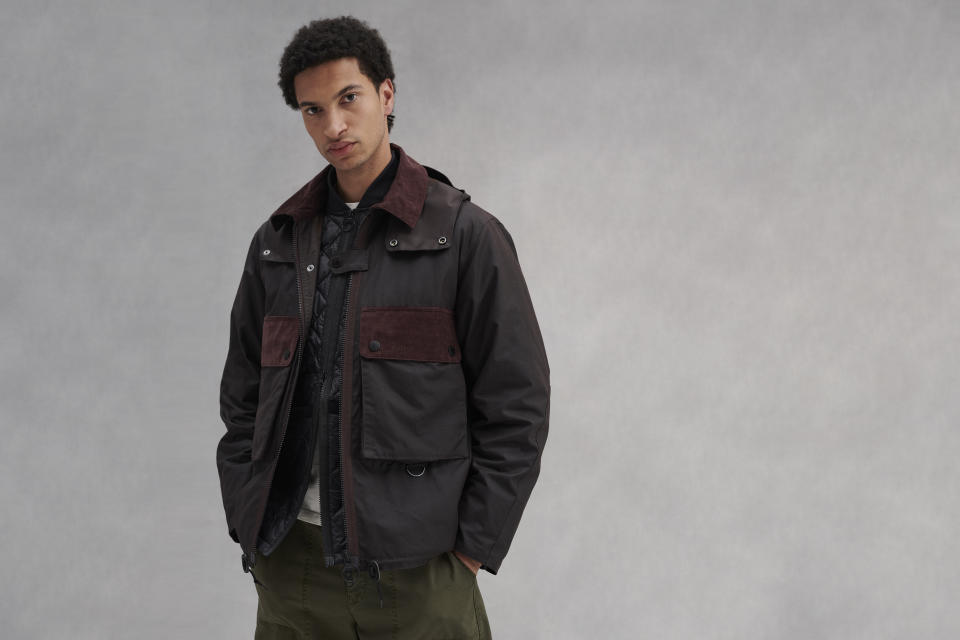
Brand: Sartorio
Designer: Antonio Paone
Backstory: The nephew of the founder of Kiton and head of the company’s U.S. division, Paone has spent three years reinventing the Sartorio collection. The line is manufactured in the company’s factory in Naples and reinterprets classic models for a modern lifestyle. Although traditional suits are offered, the collection is focused more on soft sport coats, vests, sweaters and updated pants, all of which sport a yellow button to differentiate it from Kiton’s signature red branding.
Key pieces: With its shorter, tighter fit, the line is targeted to a younger customer. A standout offering for fall is a glen plaid sport coat paired with a vest in the same pattern with a wool and cashmere collar detail and a hood. Other pieces include a reversible raincoat in cashmere on one side and a technical fabric on the reverse. It is offered in 25 colors.
Prices: Jackets run $2,495 to $3,495, the glen plaid sport coat is $2,850 and the matching vest is $2,425.
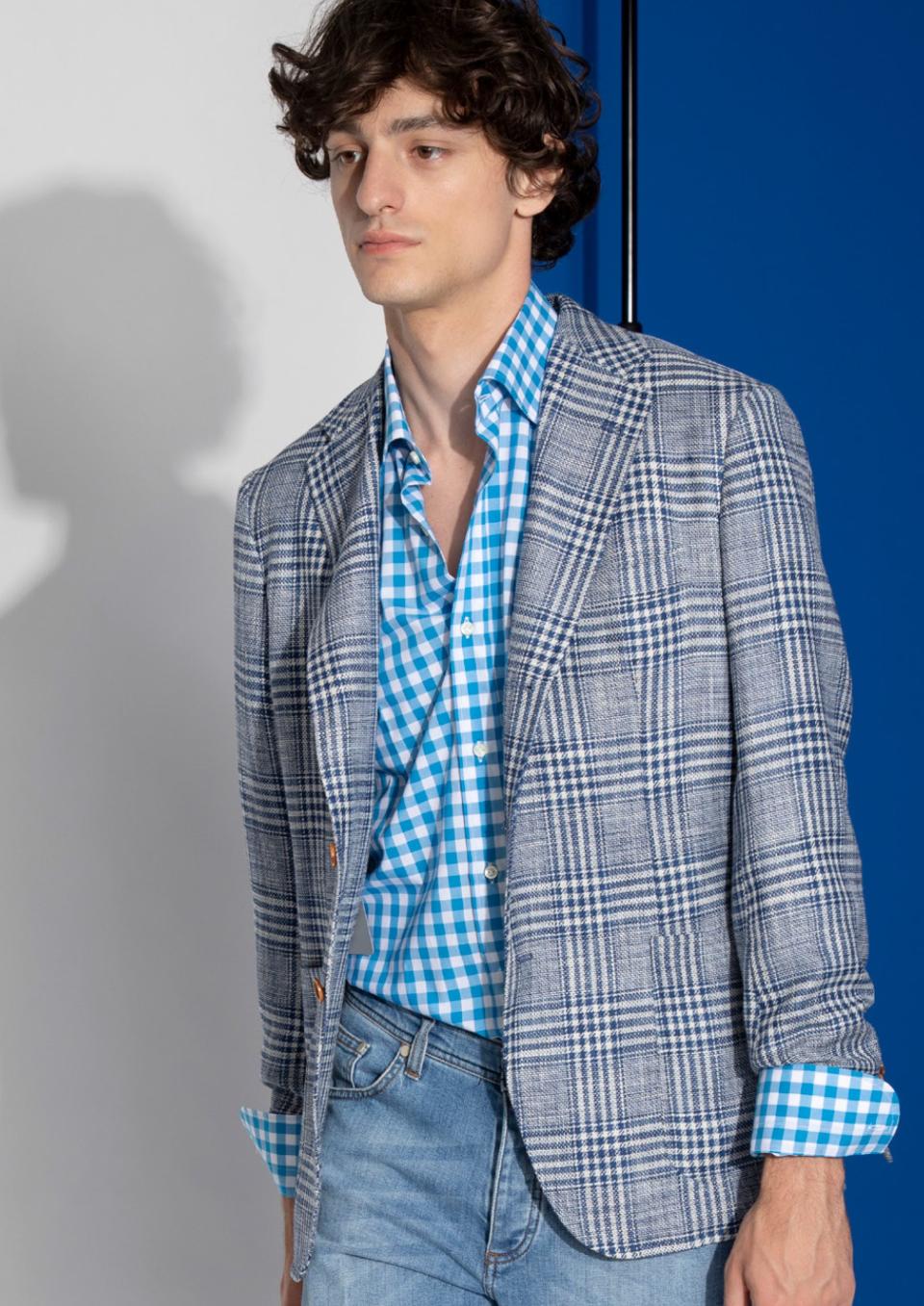
Brand: Shinola
Backstory: The Detroit-based brand has seen immense success in its 10 short years on the luxury watch scene. Tom Kartsotis, who cofounded Fossil, began the brand in 2011 after purchasing its name from a popular shoe polish brand that was founded in 1877 and went out of business in 1960. The first timepieces the company launched were the 40mm and 47mm Runwell watches in 2013, which garnered instant success, with the 2,500 special-edition pieces selling out in less than a week. Today, Shinola offers a diverse slate of options from vintage-inspired bestsellers to funky and colorful new lines; it even offers a program to customize and design timepieces.
Key styles: The Monster line of automatic watches includes a standout in bronze with a natural patina case that will change over time, with use of alternative materials such as an ocean plastic strap. There’s also the diving watch-inspired range composed of a ceramic case with an exposed back case.
Prices: The battery-operated pieces retail for $550 to $1,200, with the automatic and manual lines starting at $1,000 and reach up to $4,000, including limited-edition styles.
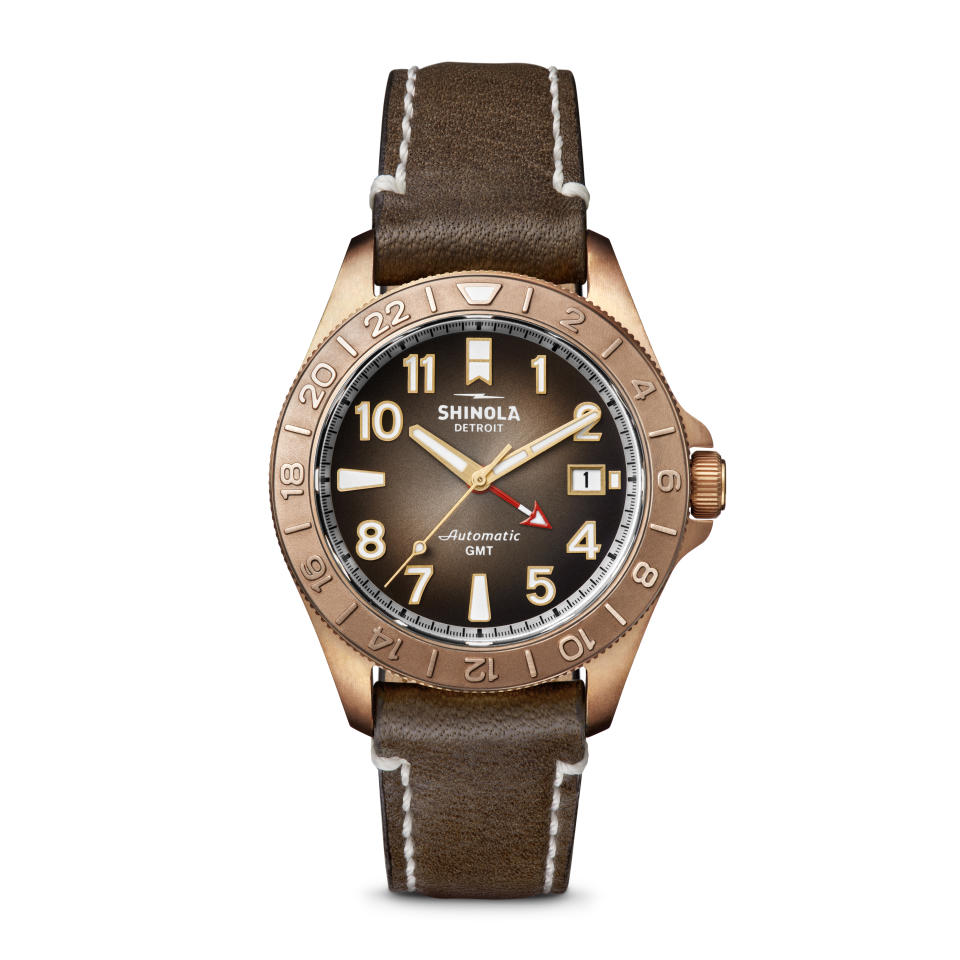
Brand: Stefano Cau
Designer: Stefano Cau
Backstory: Headquartered and designed in the famous silk city of Como, Italy, the brand specializes in handmade artisanal silk ties, but offers a broad assortment of men’s accessories such as scarves, pocket squares, silk shirts and bathing suits. Cau’s family has been running a textile business since 1964, and while he joined at the age of 19, it wasn’t until 10 years ago he decided to take his unique sense for design and creativity and launch a namesake label, which has become an under-the-radar find for many tie lovers and a rising star when it comes to handmade ties.
Key styles: Cau takes his inspiration from vintage prints from the 1920s and ’50s; patterns are characterized by architectural references, with plays on art déco motifs, geometrics and contrasting colors. The range is rooted in ties with geometric patterns and takes on cubism; striped printed ties with woven effects; equestrian-inspired prints depicting horseback riders, and a seven-fold tie sans interlining.
Prices: Retail prices begin at $175, with the seven-fold option reaching $280.
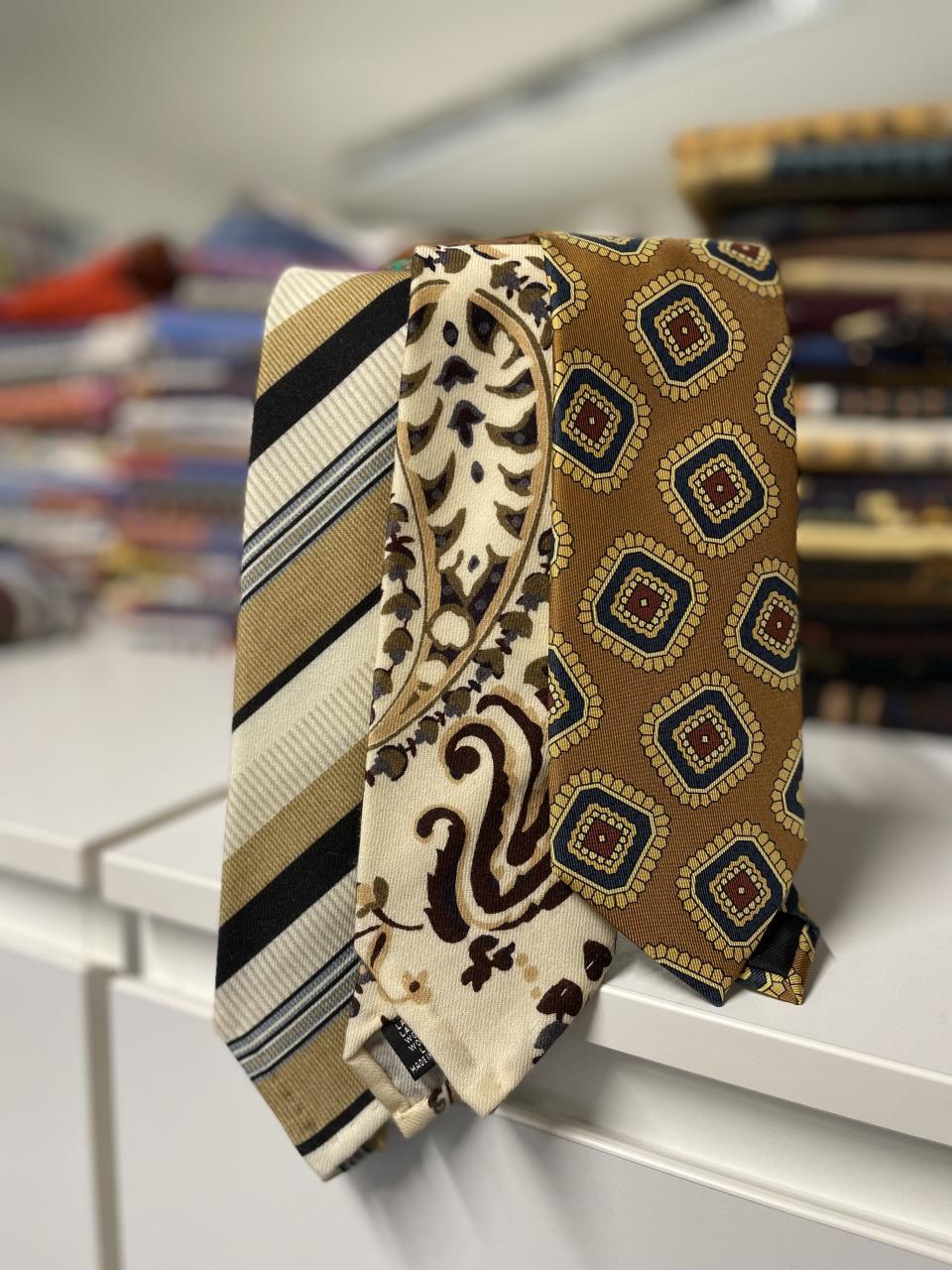
Brand: Bogner
Backstory: The well-established German company is considered the inventor of sports fashion. Founded in 1932 by ski champion Willy Bogner Sr. and his wife Maria, the company was originally a small production plant in a courtyard in the center of Munich, but soon made a name for itself, equipping the German ski team at the 1936 Winter Olympics. After expanding into a more consciously stylish skiwear brand in the ’60s after demand for sports fashion grew, Bogner started making functional clothes, too. Today, the brand is owned by the founders’ son, Willy Bogner Jr., who has successfully made the international brand synonymous with luxury sports fashion. Bogner is also the official outfitter to the German national ski team.
Key styles: A navy technical jacket with a waterproof exterior material and a full shearling insert that is removable is a standout, along with a tan ski corduroy jacket with a 20,000 water column and a snow skirt, and a full shearling cropped coat.
Prices: The sport and ready-to-wear jackets retail for $1,900 to $2,400, cashmere-blend jackets range from $650 to $750 and knitwear rings in between $350 and $890.
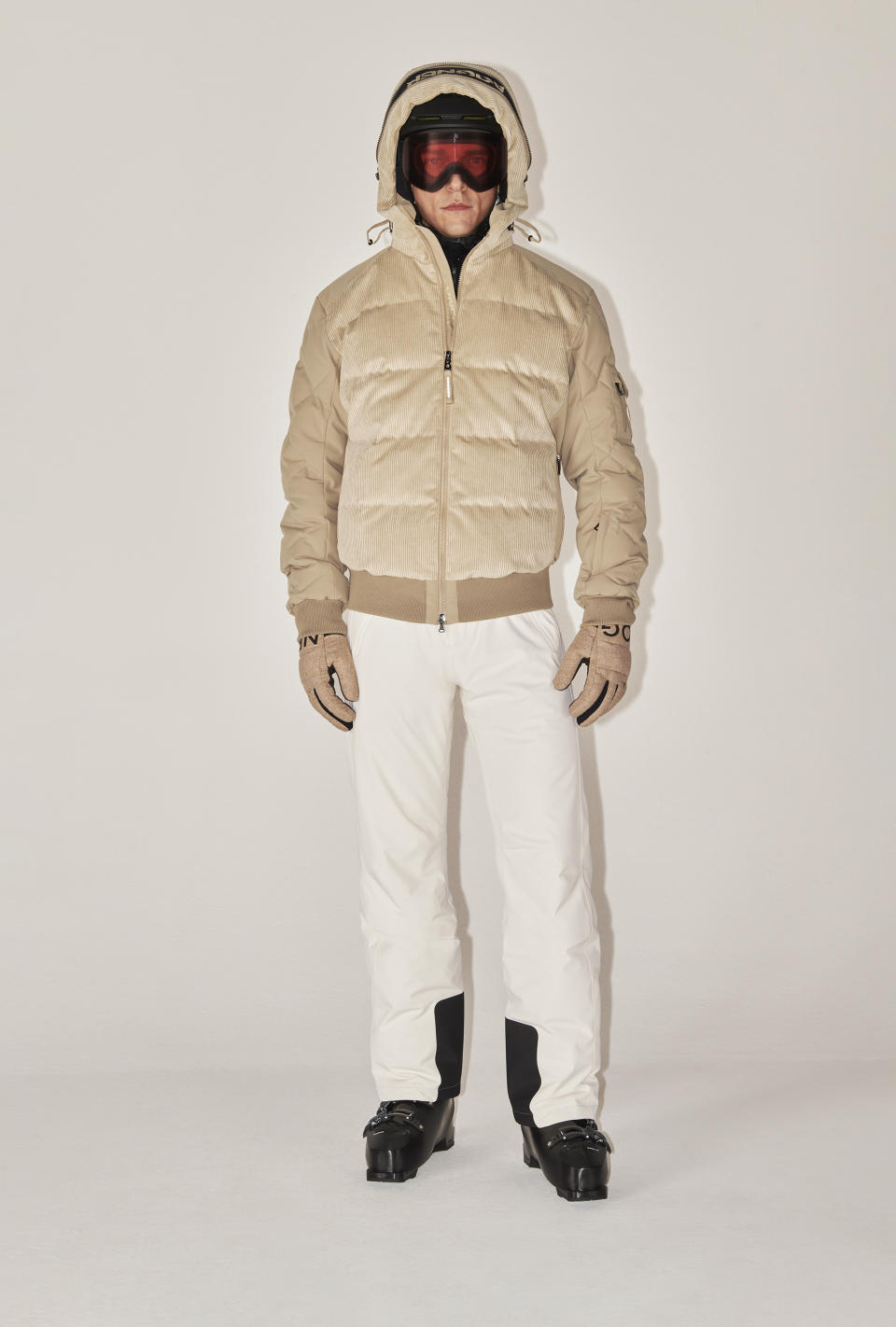
Brand: Citizens of Humanity
Designer: Marianne McDonald
Backstory: Founded in 2003, Citizens of Humanity makes cutting-edge premium denim and apparel in classic and contemporary silhouettes. Located in downtown Los Angeles, the brand’s assortment includes an assortment of cuts, washes and fits, along with sweatshirts, T-shirts and oversize shirts to create the Californian laid-back look, designed locally in its in-house laundry and manufacturing facilities. A veteran in the denim industry, Citizens of Humanity founder and designer Jerome Dahan honed his fashion aesthetic growing up in Paris and Montreal before moving to brand’s home base to L.A., where he combines an unerring eye for cutting-edge design with comfort and fit.
Key styles: The fall collection leans into the idea of lived-in workwear and utility seen through the lens of modern wardrobing. This translates into relaxed denim and pant silhouettes in patina-ed washes, outerwear that feels both refined and casual, and knits that have a modern aesthetic. The range is anchored by its outerwear with pieces such as utility jackets with oversize pockets, the Service Jacket with a corduroy detailed collar and the Barrett Jean.
Prices: Pants and denim styles start at $228 to $358, and jackets range from $328 to $548.

Best of WWD


